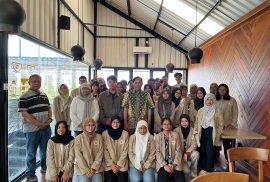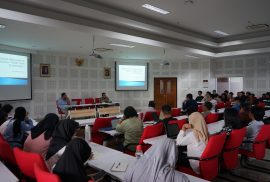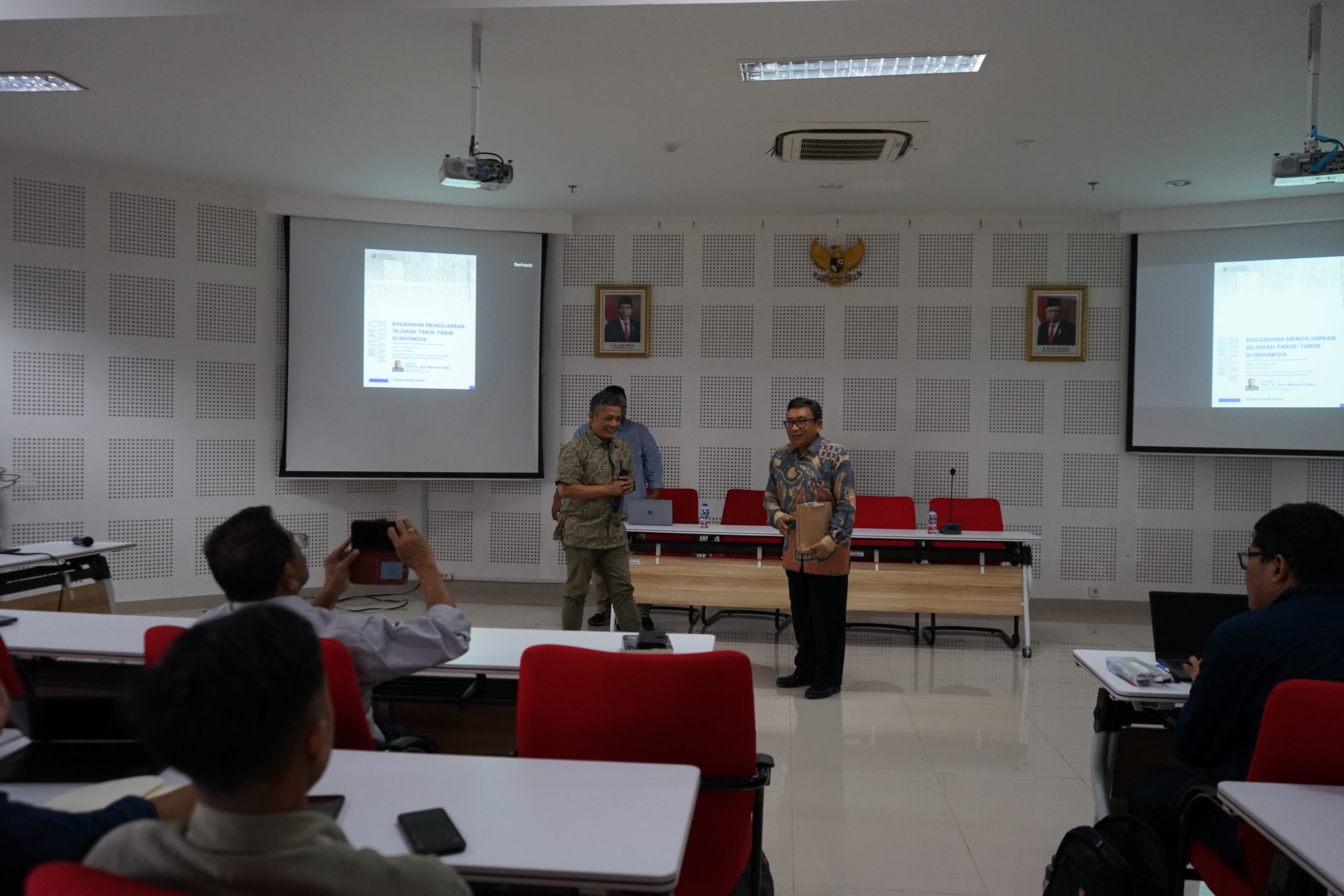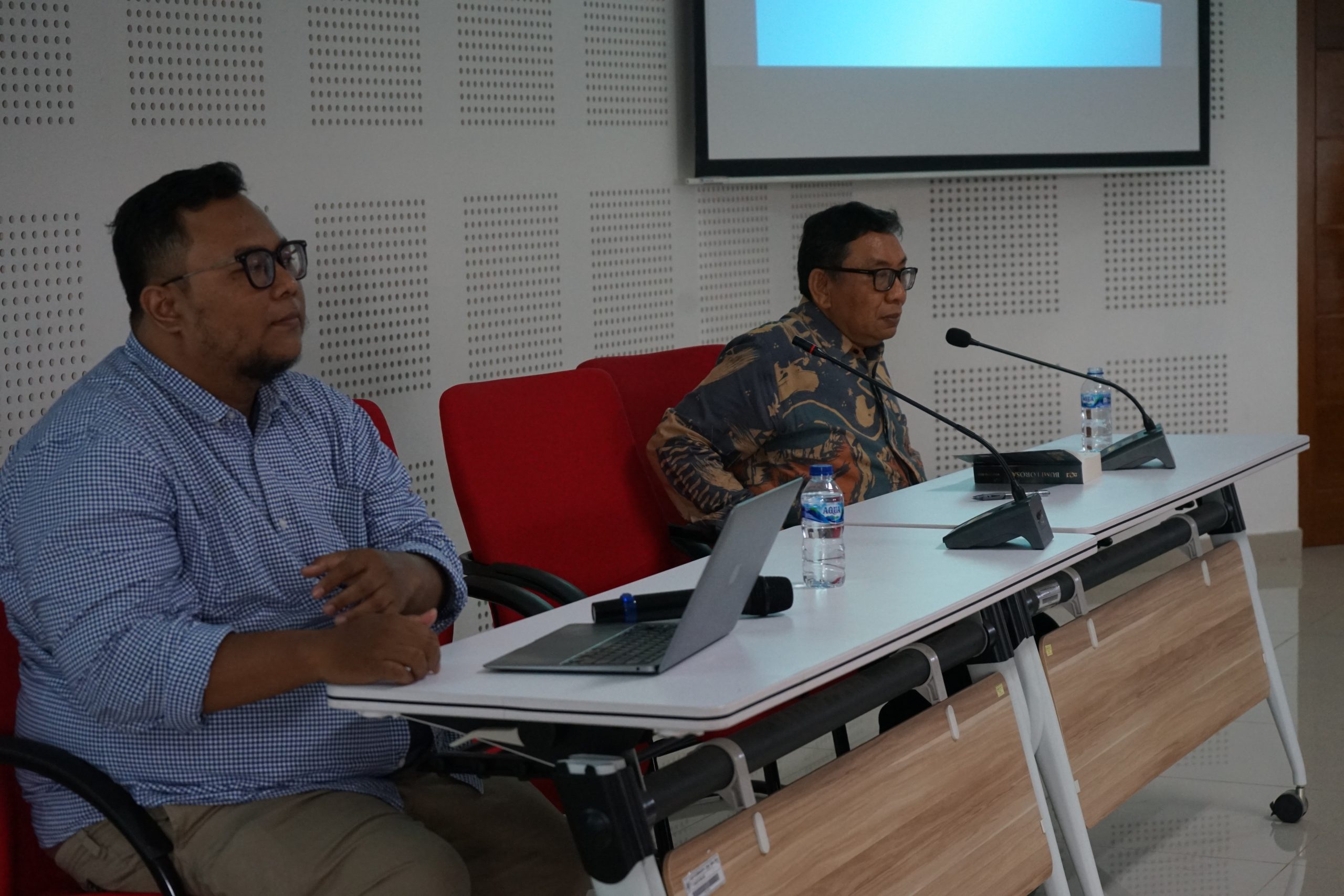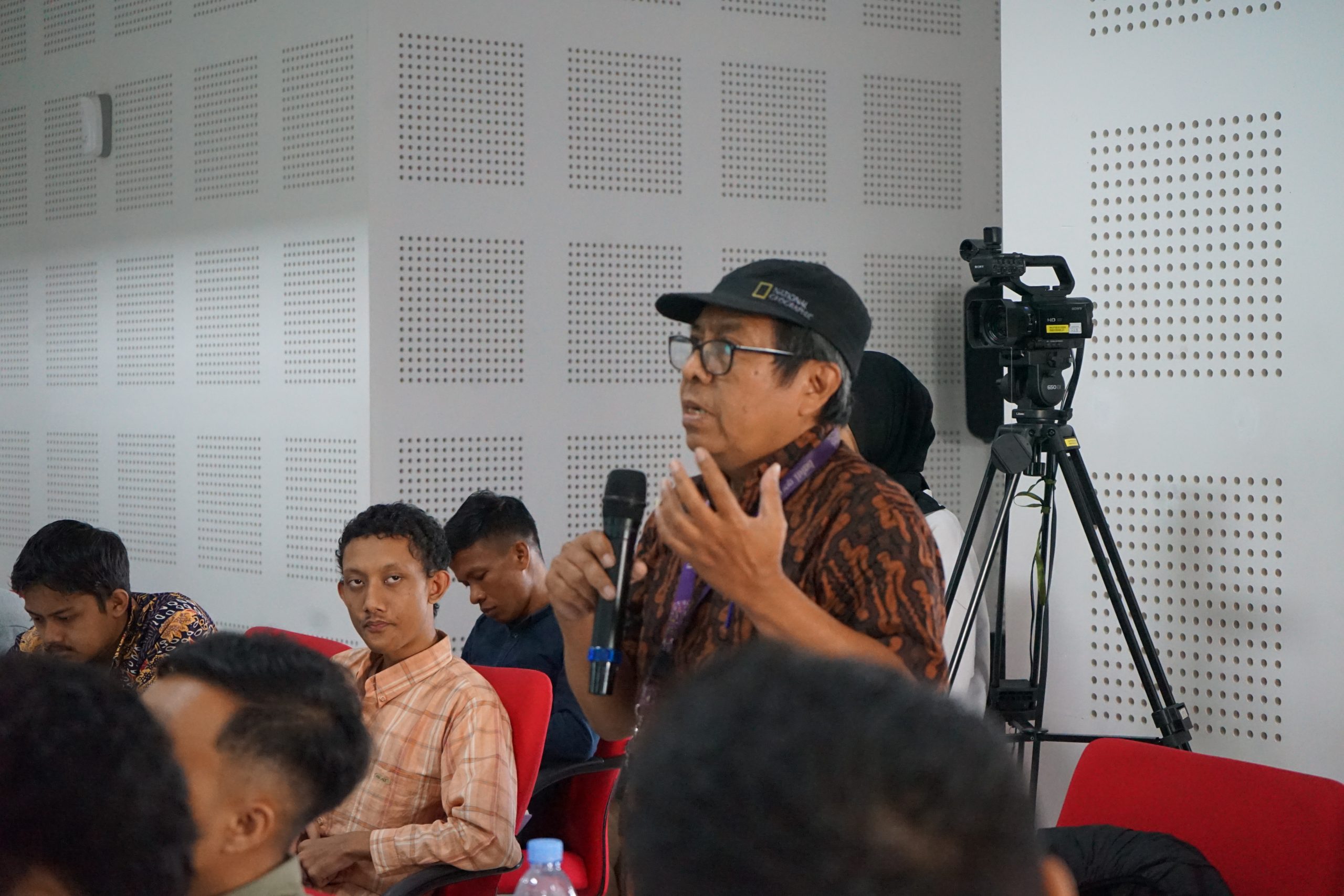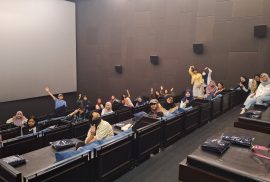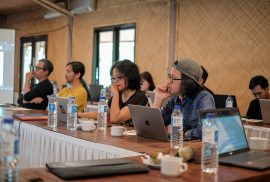On Monday, November 25, 2024, students of the Japanese Language and Culture Study Program, Faculty of Cultural Sciences, Universitas Gadjah Mada (FIB UGM), conducted a field study to PT Rupa Raya Indonesia, a company engaged in the field of Japanese home architecture design.
This activity is a direct learning event for students to understand the application of creative technology while seeing opportunities for cooperation between Japanese culture and technological innovation in Indonesia. PT Rupa Raya Indonesia, which has a reputation for excellence in the field of design, was the perfect location to broaden the students’ knowledge of culture and technology.
The event began with a warm welcome from the CEO of Marumori Company Japan, PT Rupa Raya Indonesia’s international partner, who explained the company’s vision in supporting collaboration. The speech was followed by the CEO of PT Rupa Raya Indonesia represented by Mr. Irzam Sarif, underlining the importance of HR development to support the company’s development.
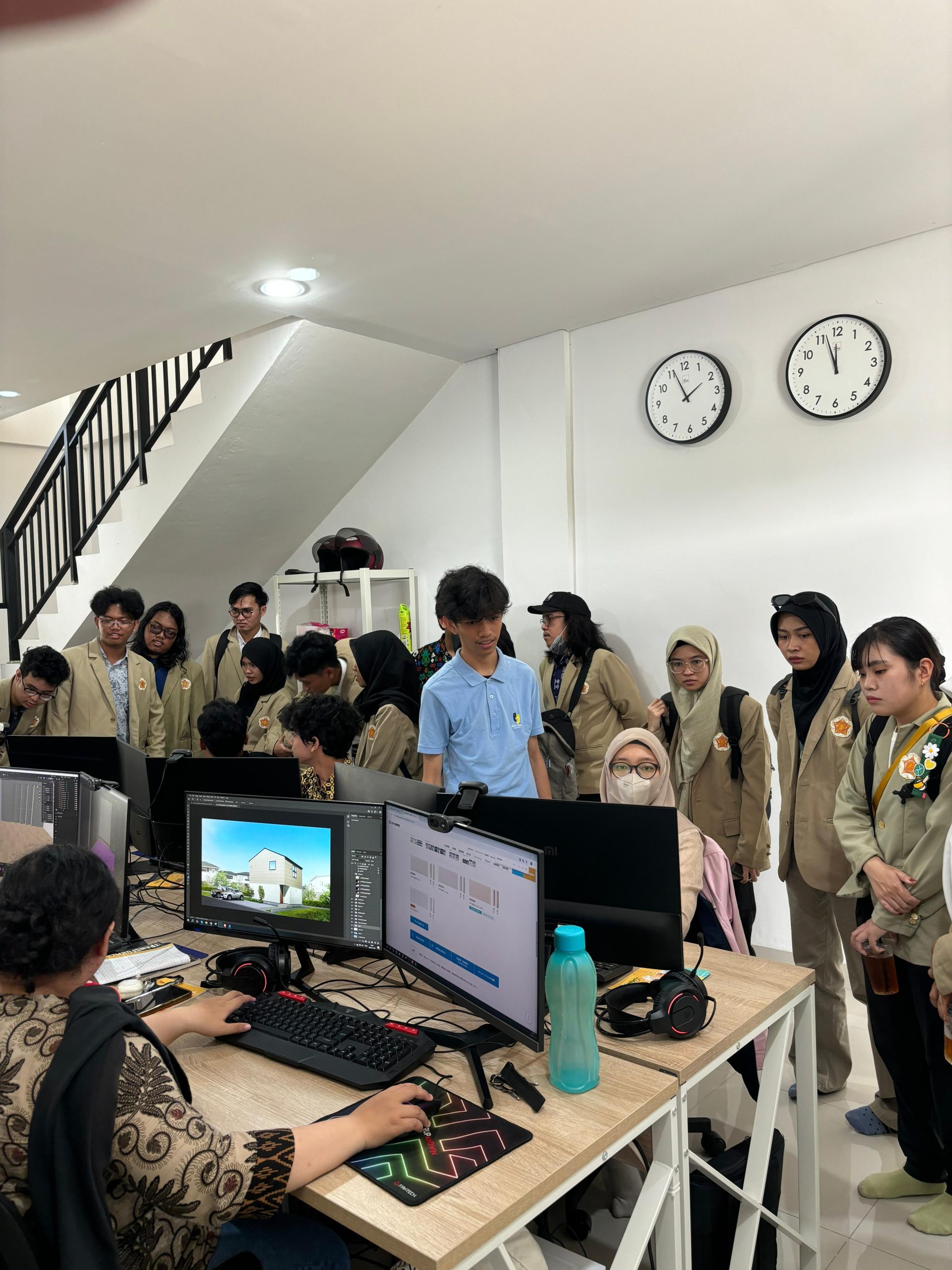 Picture 1 Japanese Counselling Study Programme Students Conduct Field Study at PT Rupa Raya Indonesia, Semarang
Picture 1 Japanese Counselling Study Programme Students Conduct Field Study at PT Rupa Raya Indonesia, Semarang
Students then followed an in-depth presentation of the company profile by PT Rupa Raya Indonesia staff. In this session, students were invited to explore the company’s superior products and services, including 3D animation and virtual reality-based innovations.
As a token of appreciation, UGM presented souvenirs to PT Rupa Raya Indonesia, which ended with a group photo session. Furthermore, students had the opportunity to visit the production office of PT Rupa Raya Indonesia. On this tour, they witnessed every process that goes into working on design orders from Japan.
This activity is expected to inspire students to continue learning and innovating, combining the advantages of Japanese language and culture with the creative spirit of Indonesia. With this visit, it is also hoped that students will not only gain new insights, but also be motivated to contribute to the development of the creative industry in the future.
[Public Relation Faculty of Cultural Science UGM, Author: Yulia Agustiani, Editor: Valentina Pramahita Iswari, Translator: Sandya Kirani]

